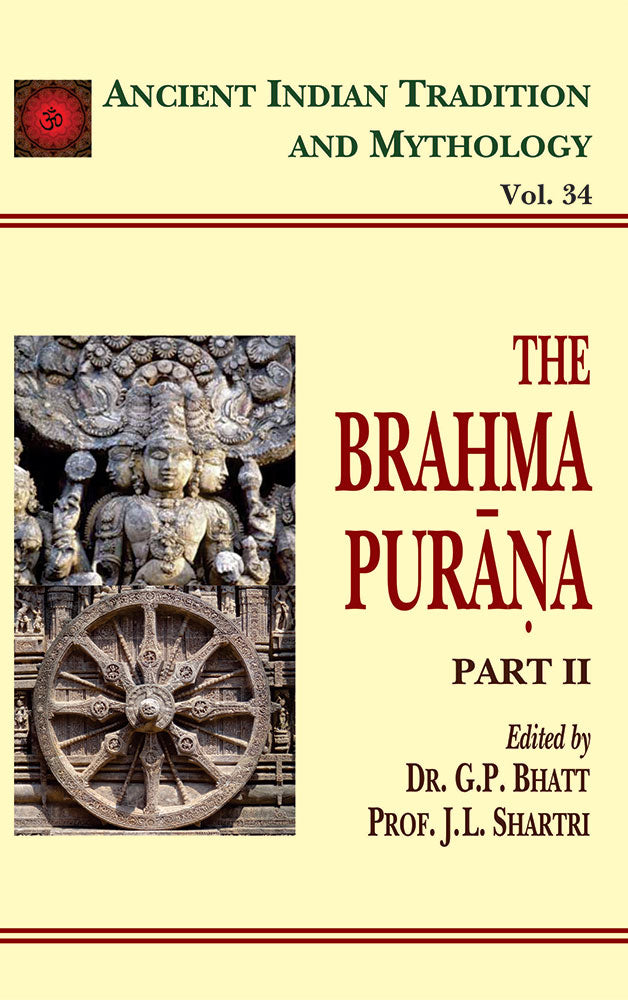Brahma Purana Part 2 (AITM Volume 34): Ancient Indian Tradition and Mythology (Volume 34)
Brahma Purana Part 2 (AITM Volume 34): Ancient Indian Tradition and Mythology (Volume 34) - Paperback is backordered and will ship as soon as it is back in stock.
Couldn't load pickup availability
The Purana is a class of literature that treats of ancient religion, philosophy, history, sociology, politics and other subjects. It is an Encyclopaedia of various branches of knowledge and ancient wisdom. It has been defined as a class of literature that contains material on the topics of Creation, Dissolution of Manus, Ages of Manus, Genealogies and the History of glorious kings. For dealing primarily with these subjects it has been called Pancalaksana a little that was incorporated in the Puranas themselves and had become popular by the Fifth Century A.D., for it was included by Amarasimha in his lexicon 'Amarakosa'. But as the process of interpolation continued, the Pancalaksana definition was found inadequate. The Puranic redactors adopted a Dasalaksana definition that suited the contemporary text. Still the dynamic forces were at work and the process of insertion, modification and abridgement went on and it was soon discovered that the Dasalaksana definition too fell short of an actual fact. It was found that the puranas contained certain aspects that were not covered by any of the five or ten characteristics. Besides some of the characteristics covered by the Pancalaksana or Dasalaksana definition were not found in certain Puranas. In fact the Purana as a class represents the different phases and aspects of life of diverse ages. It is impossible to adopt a standard definition for the class of literary composition that contains heterogeneous phases and aspects. Moreover, a definition framed on the numerical basis of points is bound to be imperfect. The Puranas are divided into two classes the Mahapuranas and the Upapuranas. Each class consists of eighteen puranas. Thus the number of the Puranas is thirty six.
Review(s)
About the Author(s)
-
Pages
-
Edition
-
Size
-
Condition
-
Language
-
Weight (kg)
-
Publication Year
-
Country of Origin
-
Territorial Rights
-
Reading Age
-
HSN Code
-
Publisher




